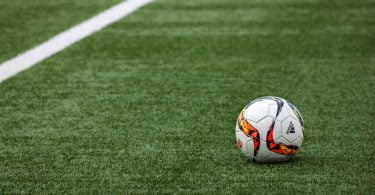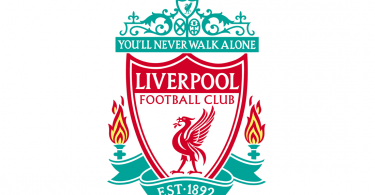“His history is a classic story of an exile trying to find his way home.” – The Outsider, Jonathan Wilson
The goalkeeper in football is a curious character. His role is unique, his jersey is different and he is almost exclusively defined by the area of the pitch which is his. Tactical developments, particularly the evolution of the ‘sweeper’ role, allow the keeper to wander from his box; but once he does, he is subject to the same laws of the game as his teammates. He is the last line of defence, one who is always under scrutiny.
Marked by these differences and pressures, the goalkeeper presents an interesting paradox. He is the loner on the pitch, seeking approval and acceptance, an exile trying to find his way home. This is particularly true for David de Gea, Manchester United’s Madrileño.
Madrid is his hometown; the Vicente Calderón was his home ground. He joined the cantera of Atlético de Madrid at the age of 13, signed his first professional contract with the club at 17, and made his debut for Atlético Madrid B in the third tier of the Spanish league. He made his first-team debut in the 2009/10 season, at just 18. The Europa League trophy and the UEFA Super Cup accompanied his two-year spell in his hometown; there was much acclaim too for the young keeper, as Vicente del Bosque praised him as being part of a group of players who would go far in the national set-up. De Gea was part of the Spanish team that won the U17 European Championship in 2007 and the U21 European Championship in 2011 and 2013.
David’s Departure to the Red Devils
His development didn’t go unnoticed; Manchester United came for him, and in the interests of development and progression, he left the Spanish capital in search of growth, and a new challenge. His time in Manchester, particularly the early months, were shaky, marked by mistakes as much as they were by good goalkeeping.
A young man in a new country, thrust into the limelight and weighed down by expectation; adjusting to cultural differences, a language barrier, and unrelenting pressure – both from the fans and the media – all compounded to make de Gea’s adjustment difficult. After some problematic performances, he was dropped in favour of the second-choice keeper, Anders Lindegaard, before reclaiming the number one spot in the team. He looked to have found his place, cemented by a remarkable save in the dying minutes of a game against Chelsea. His debut season was a mixture of success and disappointment, however, crowned only by the Community Shield trophy. Most importantly, though, he demonstrated the promise of talent which had convinced Alex Ferguson to bring him in as the long-term replacement for Edwin van der Sar.
The following season, de Gea tasted success – the last success of Alex Ferguson’s long and glorious era – as Manchester United were crowned Premier League champions. In the two years since, de Gea hasn’t captured the trophies that his talent deserves. De Gea’s performances have impressed in Manchester, even if they have not been rewarded with silverware. In his four years at the club, he has won the Sir Matt Busby Player of the Year award twice, in consecutive seasons, has been voted into the PFA Team of the Year (again, for two consecutive seasons) and he was nominated, and won, the Manchester United Player’s Player of the Year award, for two consecutive seasons. His growth and development has been both consistent and impressive. He has impressed elsewhere, too; Real Madrid are interested, and what Real Madrid want, they usually get.
De Gea: future Galáctico
The chase for the young Spaniard is necessitated on two fronts, by Iker Casillas’ deterioration and fall from grace; the elder statesman, the captain who led Real to La Décima, is past his best. In typical fashion, de Gea will be a marquee signing, a rising legend replacing an established one, taking Casillas’ place at the Bernabéu. Just as de Gea moved on from Madrid in the search for a new challenge, a move back to his hometown offers the promise of silverware as Real Madrid look to re-establish their dominance as the best team in Spain in response to Barcelona’s treble.
Playing for Real brings with it certain pressures, political and psychological as much as sporting, but it also provides a platform on which de Gea can shine. Competing at the highest level, domestically and in continental competition, will only further his development as an elite ‘keeper. He will not only replace Casillas at club level; he will attract the attention of Vicente del Bosque, which will accelerate his displacement of Casillas in the national squad, too. His experiences at the U21 level have primed him for success, and he will be eager to become the national number one sooner rather than later. De Gea has developed into one of the finest goalkeepers in the world – his name can be mentioned now in the same breath as Manuel Neuer, Hugo Lloris, Gigi Buffon and Ter Stegen – and he deserves to claim that honour as soon as possible.
When de Gea completes his move to Real Madrid – whether it be this close-season or the next – it will be an apt homecoming, one which rings with a degree of poeticism. He began his career at Atlético de Madrid, Los Rojiblancos, and moved to Manchester United, The Red Devils; now, he is wanted at Real Madrid, Los Blancos. From red and white, to red, then white; from Madrid to Manchester, and back again. Such is the life of the exile goalkeeper trying to find his way home.
This article first appeared on the personal blog of the author: conormfmcardle.wordpress.com








